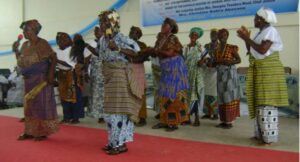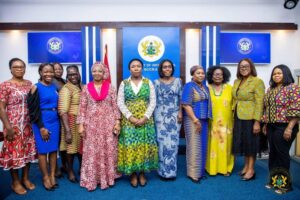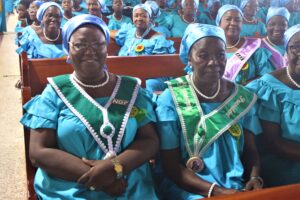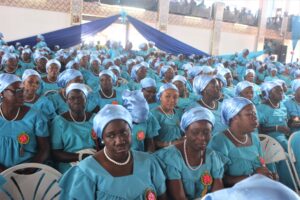As the World marks International Women Day on March 8, many wishes are being received by women for their loving and caring nature. Indeed, no one will dispute the fact that women are the gem of society but globally, they are considered to be poor and disadvantaged than men and as the main caregivers of children, poverty hits them the hardest of all, despite the annual celebration of the International Women Day and Mother’s Day.
While the day is celebrated every year, many attempts have been made to put women into their rightful place than where they are now. For women living in extreme poverty, every day is a struggle to survive. Consequently, they do not have the means or education to adequately consider negative repercussions on their environment, or the advantages of sustainable living.
Women are more often affected and jeopardized by poverty. Lacking powers of self-control and decision-making powers, women once having fallen into poverty have far fewer chances to remedy their situation.
What causes the impoverishment of women may also cause the impoverishment of men. Therefore, what matters most to understand the causes of the feminization of poverty is not what causes poverty in aggregate terms but the gender inequalities behind poverty.
In fact, since feminization is a process, what is crucial is the changes in these gender inequalities or in the factors that result in gender inequalities. The feminization of poverty, among many other factors, may be caused by changes in: dissolution of marital unions, constitution of families without these unions, higher male mortality; gender division of labour and consumption within the household, gender roles regulating the control over household resources; barriers to education of girls, educational segregation by sex and lack of women specific health attention.

Occupational segregation, intra-career mobility, differential levels of employment in paid work, wage discrimination, duration of work shifts. Property rights, discrimination in the judiciary system, constrains in community and political life.
The increasing dissolution of marital unions, control of household resources in favour of men, barriers to education of girls, inequality in social protection, labour market inequalities, discrimination in public and political life as well as failure to take into account gender perspectives in development planning and resource allocation are the main causes of feminization of poverty.
Considering the way our communities are set up and the positions women occupy in our traditional societies, make them victims of various forms of discrimination. Women have been combining all work they do in the economic field with their household chores. Caring for the family when they are capable and when even they are not. They alongside cater for the young ones, the old and the sick.
One major way that poverty among women can be solved is by paying close attention to a number of issues that many governments have already started on. Gender mainstreaming and gender responsive budgeting are key to ensuring that women’s concerns were taken care of in our national development efforts.
The concept for strategy of gender mainstreaming was established at the fourth World Conference on Women held in Beijing in 1995, as the internationally agreed approach for governments and development practitioners to promote gender equality.
Gender mainstreaming as defined by the UN Economic and Social Council is a process of assessing the implications for women and men of any planned action, including legislation, policies or programs, in all areas of gender issues and at all levels.
Gender responsive budgeting in no doubt is an important political tool to redistribute national resources which is crucial for Civil Society Organizations and other partners to equip themselves to monitor the system to ensure its effect on women, men, boys and girls in our societies.

African countries should make room for sufficient allocation of financial resources to gender mainstreaming activities. The government of Ghana like others had over the years demonstrated its commitment to gender mainstreaming through concrete actions.
One of the most important constraints in realizing women’s rights and achieving the Sustainable Development Goals is the inability of governments to account properly to women’s needs.
In Ghana, Parliament passed the Affirmative Action Bill on July 30, 2024, aiming at promoting gender equality and women empowerment by addressing the systemic barriers that have hindered women in the Ghanaian society. Indeed, Ghanaian women are qualified to hold positions as girls are also now opting for STEM Programmes.
Affirmative action refers to a policy aimed at increasing workplace and educational opportunities for people who are underrepresented in various areas of our society. It focuses on demographics with historically low representation in leadership and professional roles. It is often considered a means of countering discrimination against particular groups.
In 2012, the Ministry of Women and Children’s Affairs in collaboration with other women groups developed a National Gender Policy, to build a society devoid of discrimination for both men and women. This Policy was to serve as a tool for advancing gender equality and women empowerment targets in Ghana.
There are global trends of the numerous key Instruments, Protocols, Treaties and Resolutions, which had been signed already from 1979 through to 2007.
Some of the Protocols and Treaties include the Cairo ICPD Consensus in 1994, the Beijing Platform for Action UN World Conference on Human Rights in Vienna, AU Solemn Declaration on Gender and Advancement of Women and the Revised ECOWAS Treaty and Gender Policy.

It is necessary to recognize that women’s access to gender justice and accountability is a basic human right.To ensure legitimacy of gender equality and women’s rights issue, there is the Domestic Violence Act Sector 2007 (Act 732), the Human Trafficking Acts 2005 (Act 694), The Juvenile Justice Act, 2003 (Act 653).
Status of Ghanaian Women
On the status of women in Ghana, and their goals under the current democratic dispensation, it is becoming clear that education remained the major caveat to women’s emancipation and progress.
The days when women were given token jobs or tokenized based on their population size rather than on their competence was fast fading, she noted, and advised young women to show dedication and devotion to higher education to also excel in their careers.
Cultural barriers would not automatically grant women autonomy as some segment of society remain highly ignorant. Even though there is the existence of the ‘Domestic Violence Act’, many women still suffer abuses because of ignorance.
In most of the leadership positions being held in the country are male dominated, and I appeal to Government and other stakeholders to reverse the trend by giving women equal opportunity.
When women are given the chance, they can play effective roles in national development even more than their male counterparts. Despite the fact that Ghana had been a signatory to many conventions on gender issues, many of the conventions are not implemented and this is affecting the statuesque of women. This is the time Political parties are encouraged to partake in inter-party advisory activities to build their confidence and ensure that the party structure did not discriminate against women.

Gender equality is both a goal in itself and a pre-requisite for reaching the Millennium Development Goals. This is because empowered women bring new ideas and perspectives to decision-making and increase the chances of education and employment for the next generation.
When women have access to finance, credit, technology and markets, they are likely to expand their businesses and contribute effectively to growth and development. Therefore, investing in women and mobilizing them to participate in the socio- economic development of Ghana `is not only the right thing to do but a smart.
Role of Stakeholders
There is also the need for civil societies and political parties to strengthen support and build the capacity of women to run for political office and also support them whilst in office to deliver. Traditional authorities and religious organizations that make it difficult for women to participate in politics should rather support them than preventing them.
It is time men on their part become advocates for women in such issues as just wages, equality of women with men in workplace, equal parenting and family life.
There can be no sustainable development if women and girls are left behind. We need to ensure that all aspects of development fully recognize women’s economic contributions and support their economic rights and integration.
We need to rethink in public policy making to promote women integration and social advancement, through increased budgetary allocations to address gender inequality, increase employment generation and productive growth as well as financial services to women.

By Damian Avevor



